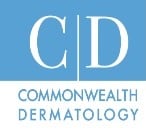Scars are a natural part of the healing process for all humans. Acne scars can vary in appearance and texture depending on the type and severity of the original acne lesions. Each type of acne scar may require a different type of treatment in order to repair the damaged areas of the skin and produce a smooth, clear appearance. Although not harmful, most people are bothered by the unattractive appearance of these scars and seek treatment to remove or significantly reduce their appearance.
Hypertrophic scars are red, raised scars filled with excessive amounts of collagen. Hypertrophic scars are caused when the body produces too much collagen as acne wounds heal, resulting in excessive amounts of raised tissue on the skin‘s surface. Also known as a rolling scars, hypertrophic scars create a wave-like appearance in the skin as a result of bands of tissue that develop deep within the skin and pull the epidermis down in certain spots.
Hypertrophic Scar Treatment
Treatment for hypertrophic scars may vary based on skin type and the size and severity of the scar. There are several treatment options available to treat hypertrophic scars and improve the appearance of the skin.
Cortisone Injections
Cortisone injections are used to improve the look of hypertrophic scars that have occurred as a result of acne. Cortisone injections may be effective in reducing the redness and inflammation of these kinds of scars, enhancing their appearance significantly.
Surface Treatments
Many cosmetic procedures, such as microdermabrasion, chemical peels and skin bleaching can effectively improve the appearance of hypertrophic scars and mild surface irregularities by gently removing the top layers of skin and rejuvenating the underlying layers for a restored appearance. Multiple treatments may be needed in order to achieve noticeable results.
Laser Treatments
Similar to surface treatments, laser treatments gently remove the damaged layers of skin to reveal new, restored skin underneath; while also stimulating collagen production for further improvements. The precise technology used during laser treatments ensures that only damaged tissue is treated, while healthy surrounding tissue remains intact.
Surgery is not a recommended treatment for hypertrophic scars because there is a risk of the scars recurring as well as the occurrence of more severe scarring as a result of the treatment.
Most treatments for hypertrophic scars are minimally invasive. Patients may experience mild swelling, discoloration and discomfort in the treated area for one to two weeks. Full results may take several months to appear.

